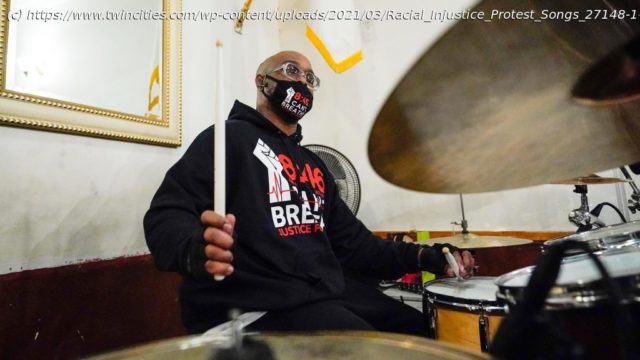Before a late night rehearsal in December, Terrence Floyd couldn’t remember the last time he squatted on a drum throne, sticks in hand and ready to perform.
NEW YORK (AP) — Before a late night rehearsal in December, Terrence Floyd couldn’t remember the last time he squatted on a drum throne, sticks in hand and ready to perform. Surely, he said, it had not happened since his brother, George Floyd, died at the hands of police in Minneapolis last May, sparking a global reckoning over systemic racism and police brutality. Now, Terrence is lending a talent he honed as a youngster in a church band to help produce and promote a forthcoming album of protest anthems inspired by the Black Lives Matter demonstrations prompted in part by his brother’s death. “I want to pay my respects to my brother any way I can, whether it’s a march, whether it’s just talking to somebody about him, or whether it’s doing what I do and playing the drums,” Terrence told The Associated Press. “His heartbeat is not beating no more,” he said, “but I can beat for him.” The untitled project, set for release one year after George Floyd’s death, follows a long history of racial justice messages and protest slogans crossing over into American popular music and culture. In particular, music has been a vehicle for building awareness of grassroots movements, often carrying desperate pleas or enraged battle cries across the airwaves. Terrence was recruited for the project by the Rev. Kevin McCall, a New York City activist who said he believes an album of street-inspired protest anthems does not yet exist. “These protest chants that were created have been monumental,” said McCall. “It created a movement and not a moment.” Some songs make bold declarations, like the protest anthem album’s lead single, “No Justice No Peace.






